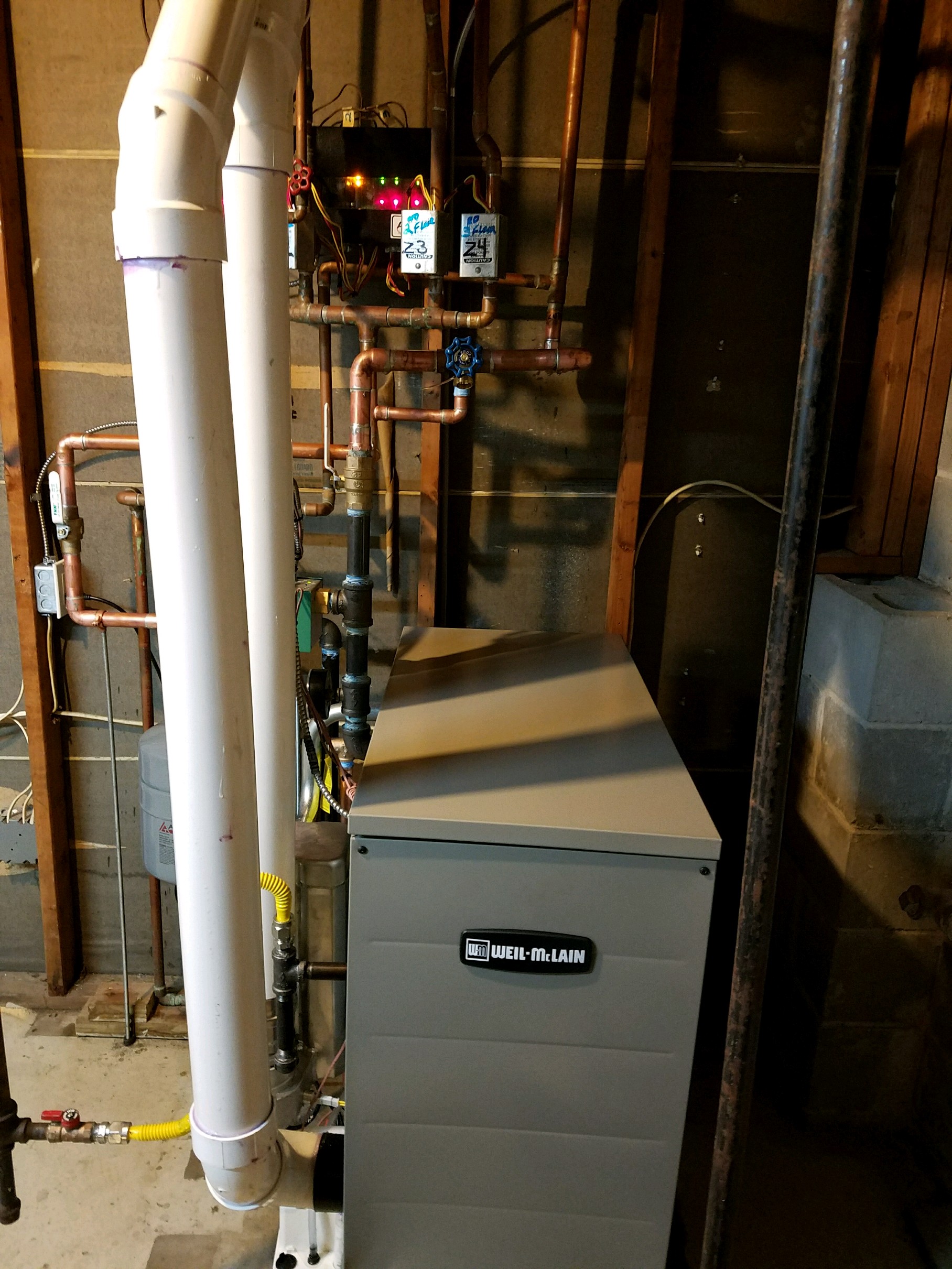Why is My Boiler Making a Banging Noise? A NJ Tech Explains
November 11, 2024

If you hear one loud bang when your boiler first turns on, the most likely reason is delayed ignition.
If you hear recurring banging or popping noises (kind of like a rapidly boiling pot of water or a pot of popcorn on the stove), the noise is probably coming from something called kettling.
Below, we’ll go into both of these issues in more detail, so you have a better idea of exactly what’s happening with your boiler and how to fix it.
Keep in mind, though, if you hear a banging noise from your boiler, you should call a technician as soon as you can. Both delayed ignition and kettling can cause serious problems for your boiler if they aren’t handled quickly.
Banging Noise #1: Delayed ignition
Delayed ignition is essentially a mini-explosion in your boiler.
When your thermostat tells your boiler that it’s time for heat, gas starts flowing to your boiler. But, if your burners don’t ignite right away, it allows the gas to build up in your system. When the burners finally ignite, there’s already a large amount of gas sitting in the combustion chamber, so it causes an explosion, which can make a bang or boom noise.
Typically, delayed ignition is the result of:
- Dirty burners- If your burners are dirty or clogged, they will struggle to light and gas will build up in your boiler’s combustion chamber.
- An uneven mixture of gas and air- Your boiler needs the right mixture of gas and air to light...so if there is too much air or too much gas, it will struggle to ignite.
- Bad gas pilot light- Your pilot light works as a safety feature, so if it’s not lit, your burners won’t light either. But sometimes your pilot light can malfunction, which can prevent your burners from lighting, and allow gas to build up in your system.
If you think delayed ignition may be causing the loud banging noise you’re hearing, you should contact a technician ASAP. Regardless of why your boiler ignition is delayed, it’s a repair you won’t want to wait on. Delayed ignition isn’t just dangerous (after all, it is a small explosion happening in your boiler), it can also be severely damaging to your boiler if it’s not taken care of sooner rather than later.
Banging Noise #2: Kettling
Ketting is almost exactly what it sounds like: water that has been heated to a temperature that’s too hot.
Kettling occurs when your boiler’s heat exchanger (the part of your boiler that’s actually responsible for heating the water) gets too hot. When water comes into contact with an overheated heat exchanger, it produces steam bubbles. Those steam bubbles eventually move to an area of water that’s cooler, where they pop, which creates a kind of banging or “kettling” noise.
Issues that can cause kettling include:
- Limescale deposits on heat exchanger- If you live in an area with hard water, limescale can start to build on your heat exchanger, creating a sort of wall or shell around your heat exchanger. If this limescale shell gets thick enough, it can make it difficult for the heat exchanger to heat the water around it. This causes the burners to stay on longer to heat the water properly, which in turn overheats the heat exchanger. When the heat exchanger overheats, it can turn the water trapped between it and the limescale shell into steam bubbles, which will make a popping or banging noise when they move into areas of colder water.
- Water pressure/flow is too low- If the water pressure in your boiler is too low, water won’t move across the heat exchanger quickly enough. This can cause the water to overheat, forming bubbles that explode when they come into contact with cooler water.
- Bad thermostat- Sometimes, thermostats malfunction or break and they aren’t able to communicate correctly with your system. If your thermostat is broken, the burners may stay on longer than they should, which can cause your heat exchanger to overheat and cause steam bubbles to form.
- Water temperature setting is too high- If your boiler temperature is set too high, it can simply overheat the water, which causes those bubbles to form.
To resolve these issues, you’ll want to call a professional. They will be able to pinpoint the issue and repair or readjust your boiler to prevent kettling for continuing to happen.
